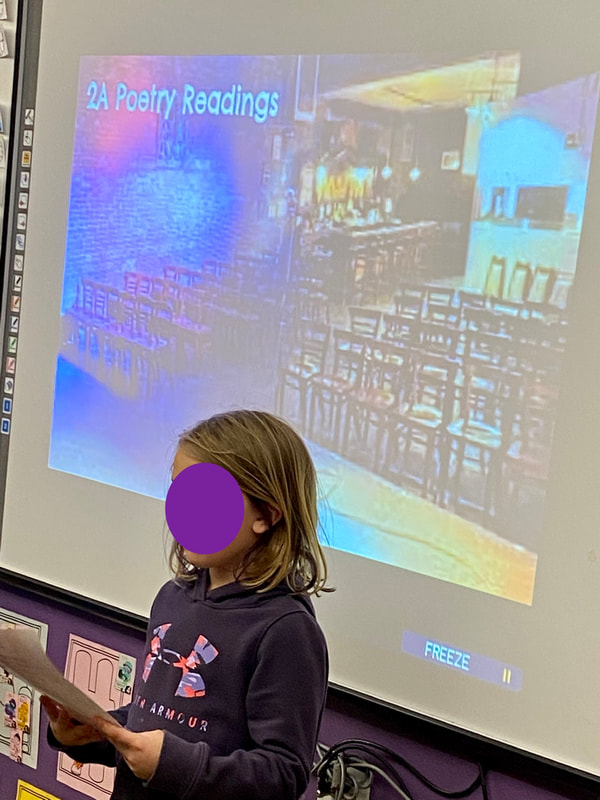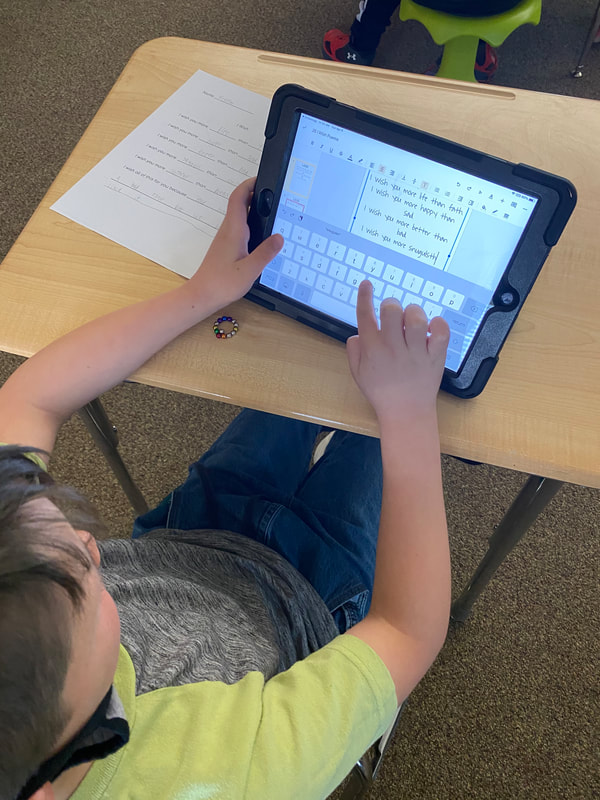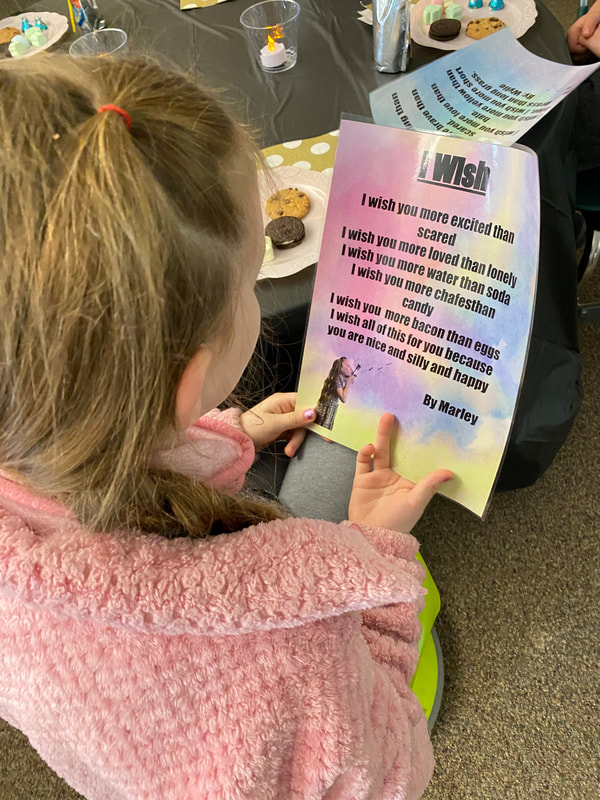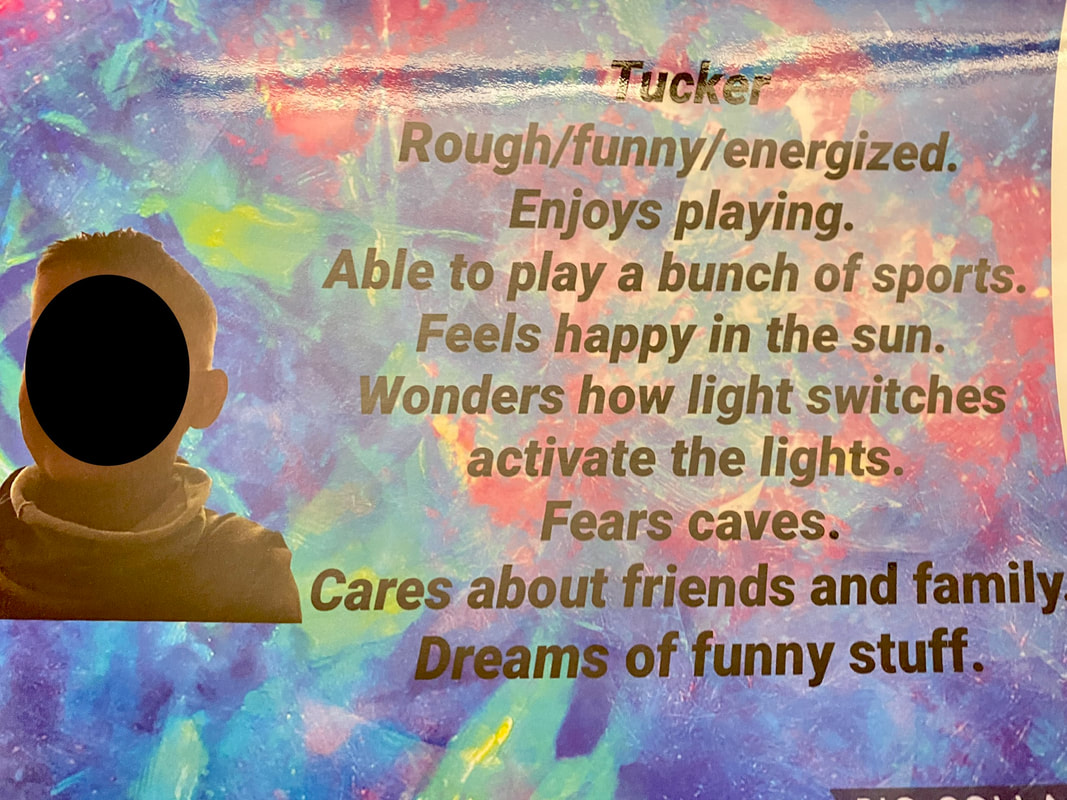|
I remember sitting in class my senior year of high school listening to my teacher tell us how to understand the meaning of a poem. Something about the color red representing loss or being a color of evil. I wondered to myself, “If this is what teaching or learning poetry is all about, it’s not for me.” Because of that poor experience, poetry hasn’t been my favorite thing to pick up and read. It certainly wasn’t something I wanted to teach. For the last few years, I dabbled in teaching poetry to my class. I have to admit, I didn’t believe I was good at writing poetry so I didn’t really expect my students to be either. We wrote some acrostic poems or tried our hand at rhyming, but it wasn’t something purposeful or necessarily meaningful. It was more of a filler activity if we had time. Then I took a master’s class in poetry. As a student, I experienced poetry in a new way and my mindset was shifted. I now view poetry as amazing! Ok...it might have had something to do with my professor and her love, passion, and viewpoint of this type of literature to get me interested but now I am HOOKED! Teachers are amazing that way. 😉 Here are some basics I took away about writing poetry. 1. It doesn’t have to rhyme. 2. You can write any way you want. You don’t want to capitalize a proper noun then don’t. 3. You are never wrong. This was a game-changer for me. That next week I marched to our school library and checked out stacks of poetry books. I couldn’t wait to share these with my class. Each morning I would pick a poetry book, flip to a page, and start reading. Then, as a class, we would talk about what we liked about the poems. Did we like the style? Topic? The way the author wrote it on the page? By the end of the second day, I had students asking if we could write poems. My answer….of course! Before I sent students off to write, I modeled for them first how to get started. (Modeling for students is good teaching practice, no matter the subject area!) I thought of a topic that I knew something about then I started to write phrases. I modeled for students to go back, to change, getting stuck in my thoughts, and finally be happy with my finished product. For the next week, students would get time in the morning to write poems. They wrote about sports, friends, family, colors, themselves, and so much more. Students learned about different types of poems like acrostic, Biographical poems, poems about using their senses, and narrative poems. As a final project to showcase their learning, students listened to the book I Wish You More by Amy Krouse Rosenthal. This book was great text to introduce and teach students about synonyms and antonyms. Students created their own poems based on the work of Rosenthal. They used Google Slides to type their final drafts. Students loved the freedom to use different fonts and sizes. Next, students used PicCollage to create an image of them blowing a wish from a seeded dandelion. One student had the idea to put their wishes in small print and blow them away like the seeds. At the end of the week, we held a poetry reading for our students. Students walked in after lunch to candlelit tables with fancy plates filled with goodies to snack on as they enjoyed the reading of their peer’s poems. The best part was to teach students to snap instead of clap when one’s reading was finished. After seeing the excitement in my classroom throughout this poetry unit, I am so excited to integrate this into our upcoming years, thinking of new ways to make it even more impactful. Students loved to share their poems and I learned so much more about them from their writings. Now keep in mind, we like to Integrate subjects, standards, and skills whenever we can. We also like to spiral our learning and our teaching. With that being said, we came up with a short list of different ways you could integrate poetry into your teaching. These are only a few ideas to help get your creative juices flowing!
0 Comments
Leave a Reply. |
AuthorMegan and Kara are educational leaders, professional development experts, and current classroom teachers who are improving the way instruction is being delivered in the standard classroom. Archives
May 2024
Categories |





 RSS Feed
RSS Feed
